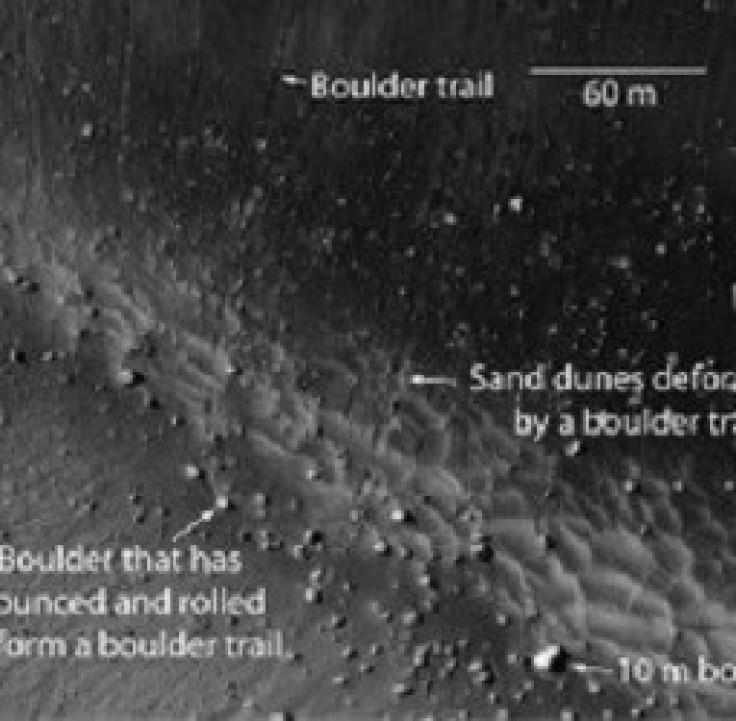Marsquakes: Another Clue That Life Exists on Mars

Scientists have discovered earthquakes or marsquakes on Mars. They believe that marsquakes are an indication that Mars could have liquid water and where there is water, there is surely life.
Scientists from the University of London have found the marsquakes. They discovered these with High Resolution Imaging Science Experiment (HiRISE).
HiRISE imagery clearly showed small cuts across the surface of Mars. These cuts were formed a few million years ago when avalanches occurred. They believed that the avalanches are likely to have been caused by ground-shaking associated with marsquakes.
According to the scientists, the discovery of marsquakes would be significant in the ongoing search for life on Mars because if the magma is still active, it would provide a source of heat, the heat would melt ice into water and where there is water, there is life.
"The HiRISE imagery showed us boulders in the size range of 2-20 metres that had fallen from cliffs during rock avalanches. What's more, both the size of the boulders and the frequency of the boulder falls decreased from a central point along the Cerberus Fossae fault system over a distance of approximately 100 kilometres. This is consistent with the hypothesis that boulders had been mobilised by ground-shaking, and that the severity of the ground-shaking decreased away from the epicentres of marsquakes," said Dr Gerald Roberts from the University of London.
"It is this link between life, volcanism and active faulting that makes the boulder data we have collected so intriguing," he said.
© Copyright IBTimes 2024. All rights reserved.





